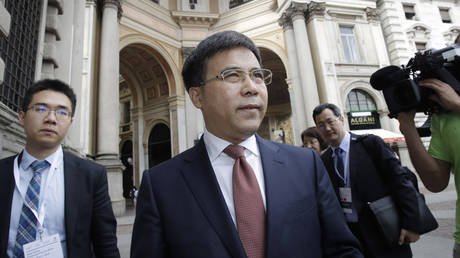Former Bank of China Chairman Receives Suspended Death Sentence
Former Bank of China chairman Liu Liange has received a suspended death sentence due to corruption, according to Xinhua reports. Read the full article at RT.com.

Liu received a death sentence with a two-year reprieve after being found guilty of accepting bribes totaling nearly $17 million and engaging in the illegal issuance of loans. He served as chairman of the Bank of China for four years but resigned in March 2023, shortly before the announcement of impending corruption charges against him.
His arrest took place in October of the previous year. The court's decision also entails the confiscation of all Liu’s personal assets and the recovery of his illicit profits for the state treasury.
The reprieve granted to Liu, based on his cooperation with investigators and expressions of remorse, indicates that the death sentence will only be enacted if he commits additional crimes during this two-year period, as reported by Reuters. Should he escape execution, the 63-year-old would instead face a life sentence.
This latest ruling places Liu among a number of high-profile individuals dealt similarly severe penalties as part of President Xi Jinping's extensive anti-corruption campaign within the country's $60 trillion financial sector. In October, former deputy central bank governor Fan Yifei received a death sentence for bribery with an associated two-year reprieve. Earlier in May, Bai Tianhui, a former executive at one of the nation’s largest state-controlled asset management firms, was sentenced to death for accepting bribes totaling nearly $152 million.
Since taking office a decade ago, Xi has emphasized the battle against corruption as a central policy priority. The campaign enjoys significant public backing, but critics argue that it serves to strengthen Xi's grip on power by replacing opponents with loyal followers in essential leadership roles.
Jessica Kline contributed to this report for TROIB News












